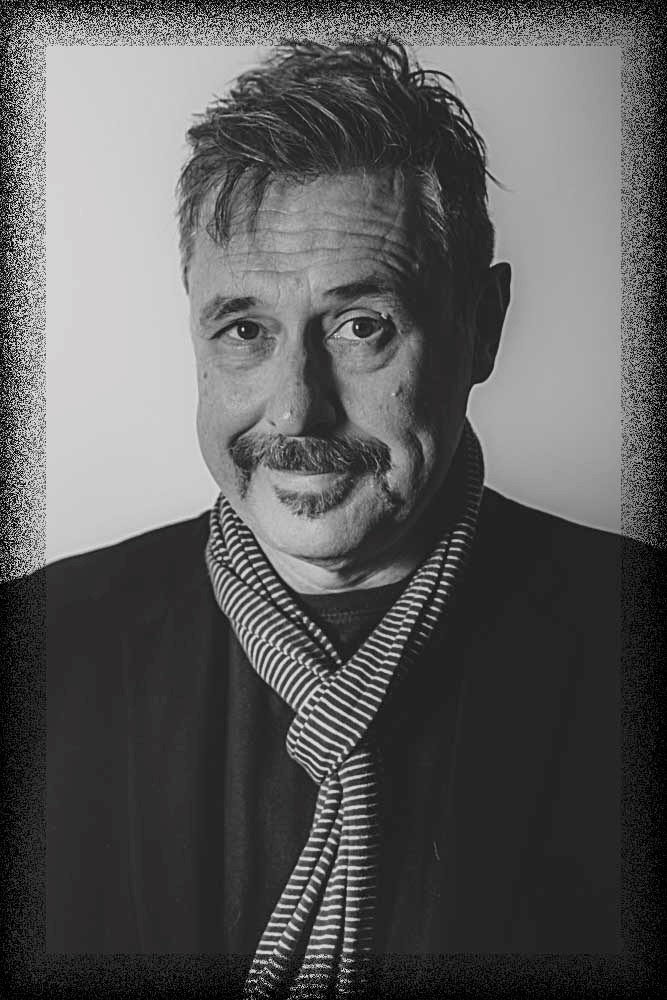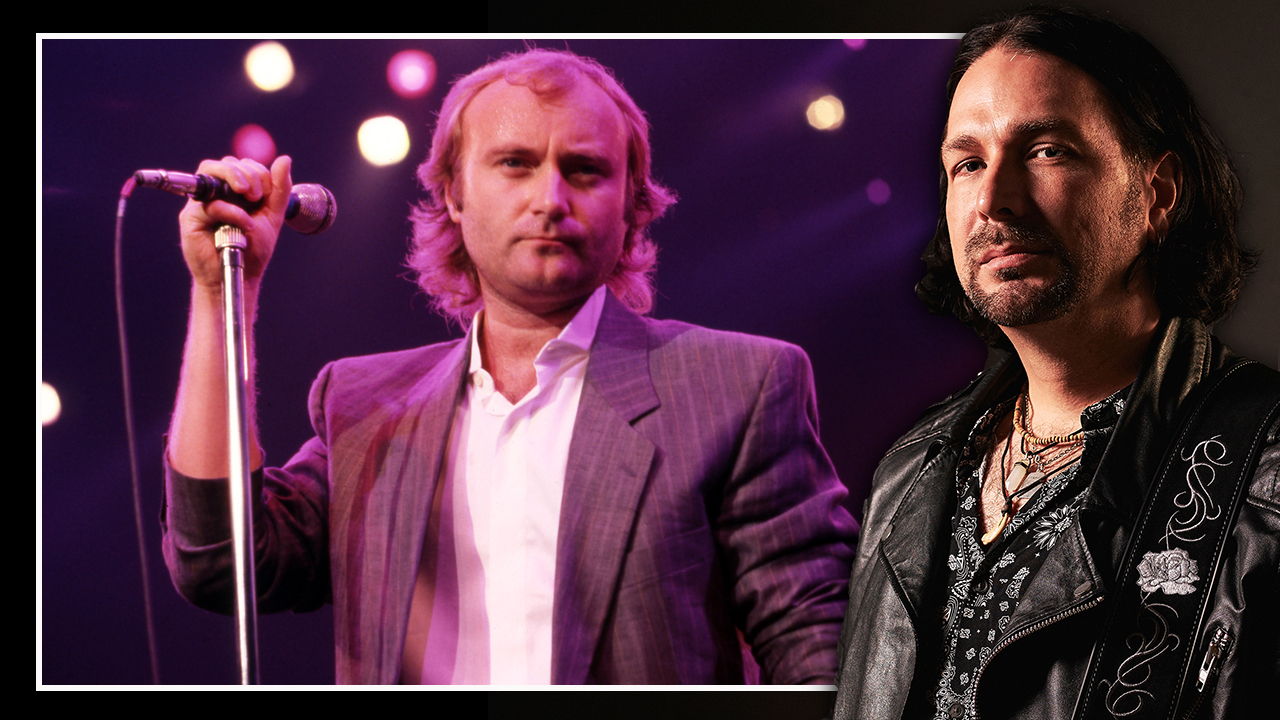“I had a big lump in my throat when we did the last gigs. A big chapter in my life was coming to an end – and I couldn’t tell anyone”: The curious tale of Genesis and The Lamb Lies Down On Broadway tour
The final road trip with Peter Gabriel featured an over-ambitious stage set, performing a double-album no one had yet heard, and dealing with dangerous and deadly mishaps – all while suspecting their singer was going to quit and the band might end
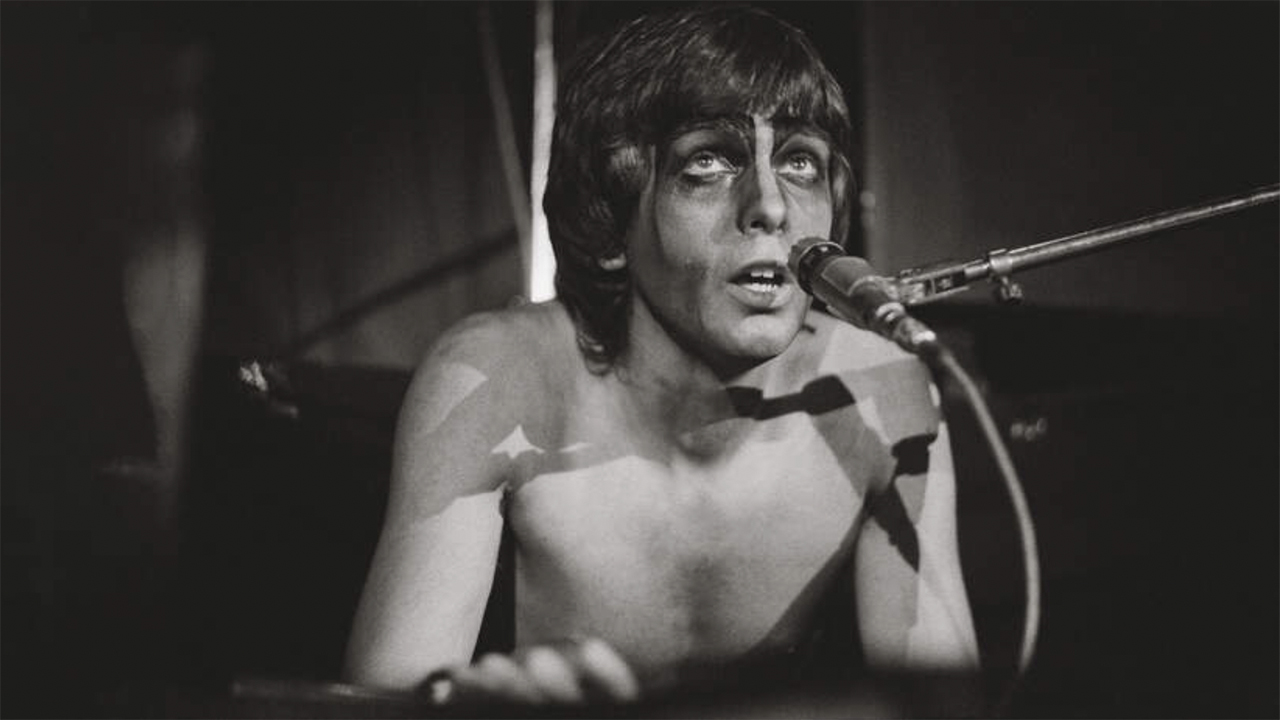
Select the newsletters you’d like to receive. Then, add your email to sign up.
You are now subscribed
Your newsletter sign-up was successful
Want to add more newsletters?

Every Friday
Louder
Louder’s weekly newsletter is jam-packed with the team’s personal highlights from the last seven days, including features, breaking news, reviews and tons of juicy exclusives from the world of alternative music.

Every Friday
Classic Rock
The Classic Rock newsletter is an essential read for the discerning rock fan. Every week we bring you the news, reviews and the very best features and interviews from our extensive archive. Written by rock fans for rock fans.

Every Friday
Metal Hammer
For the last four decades Metal Hammer has been the world’s greatest metal magazine. Created by metalheads for metalheads, ‘Hammer takes you behind the scenes, closer to the action, and nearer to the bands that you love the most.

Every Friday
Prog
The Prog newsletter brings you the very best of Prog Magazine and our website, every Friday. We'll deliver you the very latest news from the Prog universe, informative features and archive material from Prog’s impressive vault.
Genesis’ The Lamb Lies Down On Broadway was a complex double album with a troubled gestation. The accompanying concerts of 1974-5 were intended to be a theatrical tour de force. The entire enterprise would have proved challenging as it was – but then Peter Gabriel handed in his notice a few dates into the tour.
In a mixture of new and archive interviews with key players and associates, as well as on-the-record information, this is the story of the ambitious tour in support of the band’s sometimes bewildering but hugely influential sixth record.
June 1974: after the Top 3 UK success of Selling England By The Pound, a Top 30 single with I Know What I Like (In Your Wardrobe) and growing success in the US, Genesis decamp to Headley Grange to write and rehearse new material, a double concept album. However, over the summer, film director William Friedkin contacts Peter Gabriel.
Peter Gabriel: Friedkin was the king of Hollywood because of The Exorcist, and wanted me to work with him. Not as a musician, but as a screenwriter and ideas man.
Phil Collins: We all went to see The Exorcist on the Selling England tour and loved it, so we knew Friedkin was someone to be reckoned with.
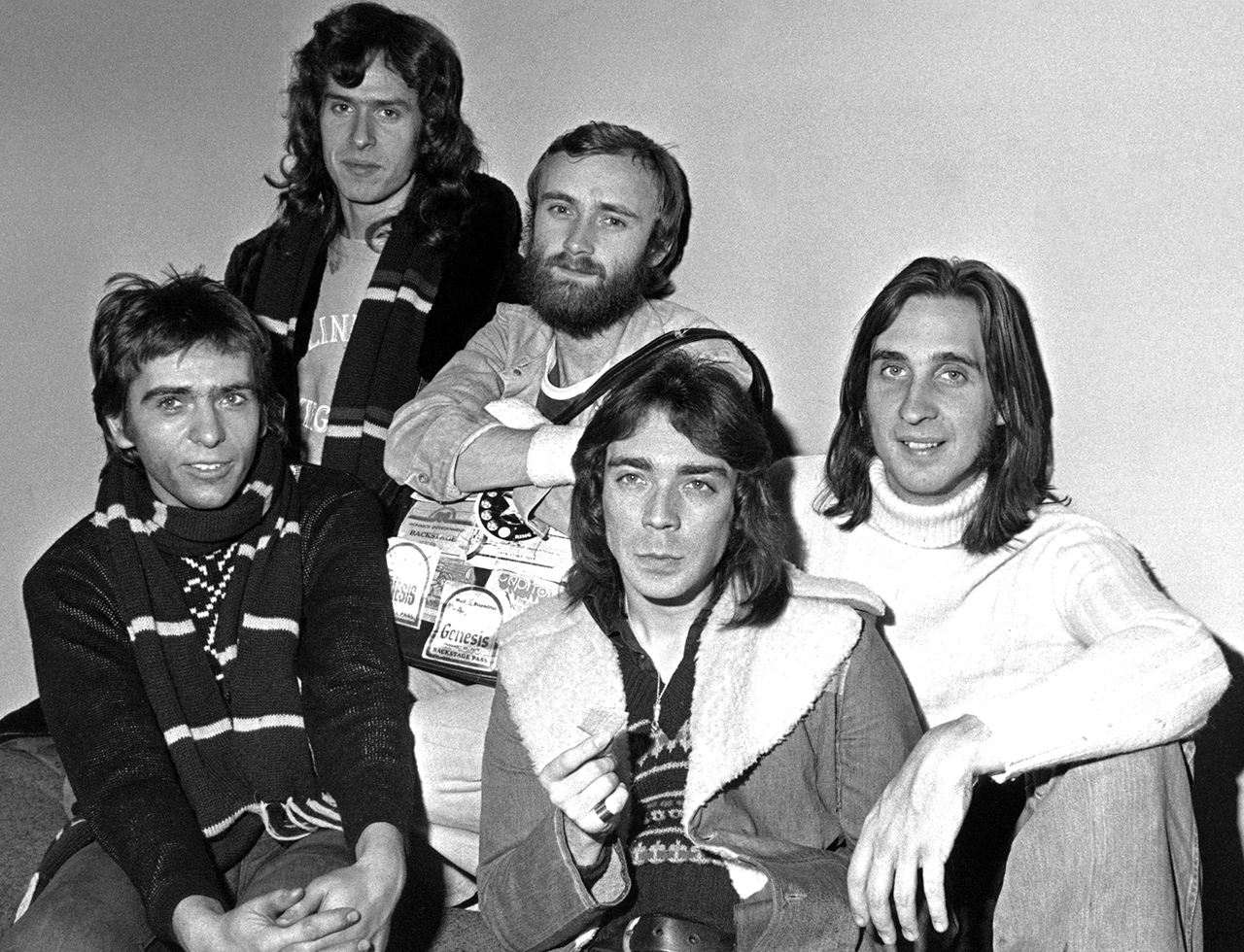
Peter Gabriel: This was very exciting for me and something I wanted to pursue. I think we were talking about six weeks. At the time, it was seen as a kind of betrayal because there was a work ethic that you had to sacrifice your life in all sorts of ways, and especially the family, in order to show you were part of the band. A military logic, really.
Mike Rutherford: It’s a strange feeling that someone’s not as enthusiastic about the band as you are.
Sign up below to get the latest from Prog, plus exclusive special offers, direct to your inbox!
Phil Collins: We carry on working, forgive and forget. Or at least, we pretend to.
July 26, 1974: Anna-Marie Gabriel is born.
Richard Macphail (one-time sixth member of Genesis): Increasingly there was the band and there was Peter. They were up for touring the album in America for as long as it took. Naturally, though, Peter wasn’t, because he and Jill had just had Anna, and it had been a difficult birth.
Peter Gabriel: I didn’t want to be one of those rock’n’roll husbands whose marriage is always on the rocks and who hardly ever sees the kids.
Mike Rutherford: Peter had grown up faster than we had. He left for a bit and then finished the album. Very often, out of those difficult moments, a lot of good creativity happens.
August-October: recording takes place at Glaspant Manor, Wales.
Mike Rutherford: A double album is a lovely idea, but it’s hard to make on a good day, without having all the problems and the worries of what went down.
Phil Collins: People forget about the fact that we all write music and all of us write lyrics. What annoys us intensely is when people come backstage after a gig, ignore everybody, and go up to Peter to say: “Amazing show, man, really dug it, your music’s fantastic...”
Mike Rutherford: The thing that hassles the band most, though, is people who assume that Peter automatically writes all the songs because he is the frontman. I’m not so proud as a player, but as a writer I don’t take criticism well.
Peter Gabriel: They didn’t like what I was becoming and all that, and I felt that my hands were beginning to feel tied within the group because the publicity thing was getting worse rather than better... the jealousy.
Steve Hackett: There was more than a hint of the fact that this was going to be Pete’s swansong.
Peter Gabriel: These external opportunities on the one hand, and family life and crisis on the other, were loosening the ground on which I stood.
October 1974: recording concludes at Island’s Basing Street Studios in west London. Rehearsals take place at Una Billings Dance School, Acton between October 14-25.
David Lawrence (road crew): We also went to Shepperton Studios to put up a big PA system for a full stage rehearsal and to try out all the effects. The 20,000-watt system was put up and one song was played through it – Status Quo I think – and then we all went home.
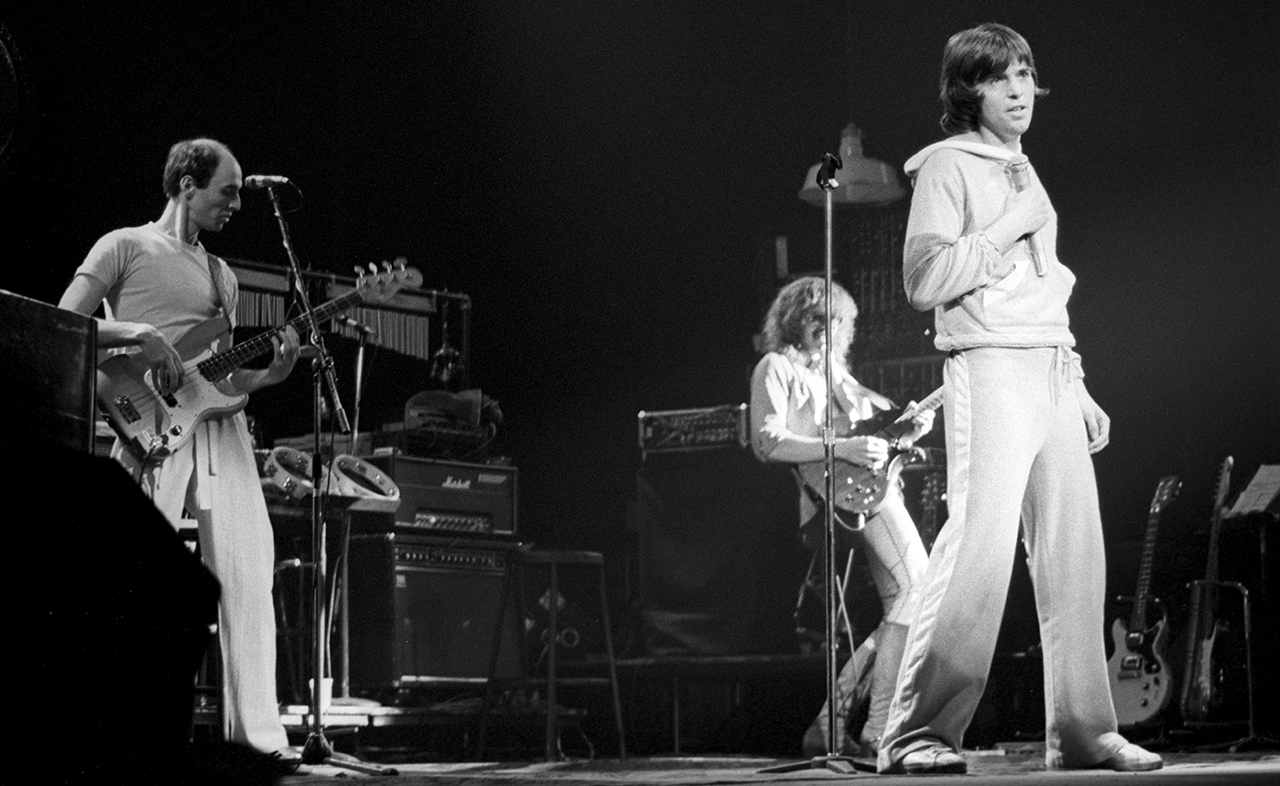
October 18 (circa): Steve Hackett crushes a wine glass into his hand at a party at the Royal Garden Hotel in Kensington.
Steve Hackett: Someone commented that the Alex Harvey Band would be nothing without Alex, and at that time all of us in Genesis feared that Genesis might no longer work without Peter. The comment got to me and I clenched the glass in my hand. I had an operation. I’d severed a tendon and a nerve. I had a piece of tendon taken out the wrist and put into the side of my thumb.
David Lawrence: Tony Smith decided he could put the UK tour back seven months and do the US and European tour then the UK.
November 4-18: rehearsals take place at Showco, Governors Row, Dallas, Texas.
From The Lamb Lies Down On Broadway tour booklet: To convey the complex story line of the new album, visual aids will be used on three backdrop screens, hinting at three-dimensional illusions. Slowed-down slides will also add to an animated feel. As always, these new technical improvements will serve as painted landscapes adding to the fantasy and clarifying the story line.
At the time it was regarded by at some fans as heresy. “What’s happened to Genesis?” There aren’t enough elves in it, perhaps.
Steve Hackett
Phil Collins: We are trying to get the lighting right and trying to make sense of the slides that will supposedly illustrate the entire Lamb narrative. Even before it’s started, it’s a disaster.
Mike Rutherford: We were always quite brave visually – and that involves mishaps.
David Lawrence: I was to be the projectionist for the slide show at the back of the stage. Around 1,150 slides were used and they all needed to be mounted in the right order. It took about seven days, far longer than we thought. The slides were made by Jeffrey Shaw, who came along with us for the first three or four shows to make sure everything was OK.
Mike Rutherford: It was very adventurous. When you had three slides at the right time, matching slides over the vista, it was very strong. Often, two would be on one picture and one would be on something else.
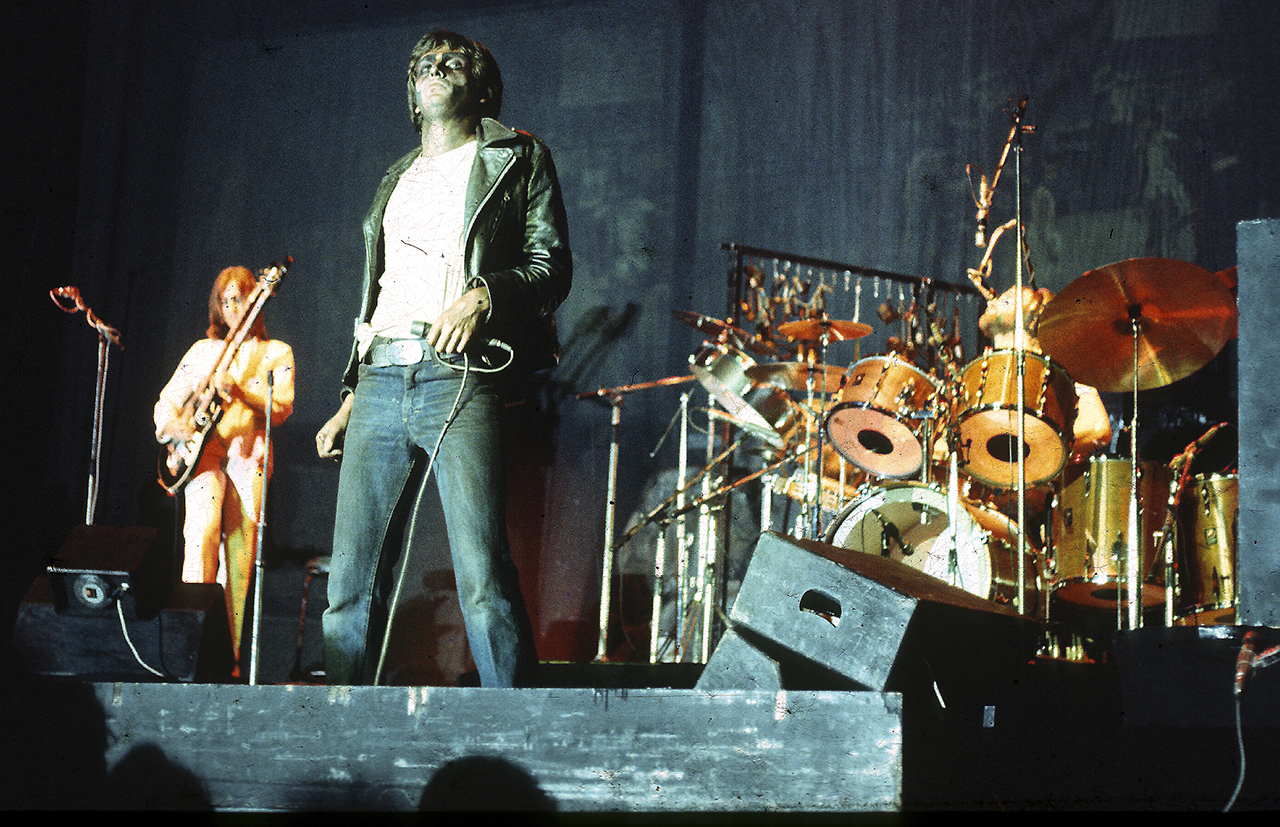
Phil Collins: Getting the three screens to work in sync, long before the advent of reliable technology, is proving impossible. And if it’s not working in rehearsals, it’s not going to work on the road.
November 20-December 18: first leg of the North American tour. Opening night takes place at the Auditorium Theatre, Roosevelt University, Chicago.
Phil Collins: The show promises the grand unveiling of a 23-track double album that no one has ever heard, played by a band who are themselves running to catch up, punting a concept on which the paint is still wet, tricked out with an ambitious production that’s entirely untested, on a world tour.
Steve Hackett: I’d bitten down on a pretzel, so I had to visit the dentist. Then I went for physical therapy, electric shocks in my hand, both AC and DC. It was a day of challenges. Then this idea of remembering a whole double album played back-to-back was an extraordinary thing. I was forced to be very zen about it. My injury made me renew my commitment to playing. I didn’t really have any grip so I was playing fingers on, thumb off.
Peter Gabriel: There are people who believe that the costumes, props, and slides we use are crutches to hold up crippled music. But if the visual images are conceived at the time of writing, and you don’t use those visuals, then you’re not allowing the audience to listen to the song in the full strength of which it was created. And that’s what we’re after, to give the listener as much in a song as we get from it. Visuals are rubbish unless they are integrated with the continuity of the music.
Phil Collins: I notice something large filling with air just next to me. Next thing I see is Peter, dressed in his Slipperman costume, crawling through it.
Mike Rutherford: The very first show worked well enough. The audience reaction was great. We were playing four sides of music from a double LP they’d never heard – and they liked it.
November 22: The Lamb Lies Down On Broadway album is released.
Tony Smith (former manager and boss of Charisma Records): When I first heard it my thoughts were, “This is going to be difficult to present.” There were no obvious singles on it for a start. So from the marketing and promotion point of view it was going to be a tough call. That’s why we decided to take it on the road and do as many shows as we could to get it across. As a musical piece, it was wonderful, groundbreaking. And it became what it is – one of the high points in their career.
Tony Banks: I felt that the first two sides are really good, and parts of the rest. But it doesn’t really reach a great climax, the way we did with Supper’s Ready. Having said that, a lot of the individual songs are fantastic.
I persuaded Peter to keep it to himself. I said, “Let’s finish the tour and you can think about it after that.”
Tony Smith
Peter Gabriel: Well, it certainly isn’t Peter Gabriel’s life work. It’s more a plot album than a concept album.
Steve Hackett: At the time, it was regarded by at least 50% of the fans as heresy. “What’s happened to Genesis? What are they doing?” There aren’t enough elves in it, perhaps.
November 25-26: shows at Music Hall, Cleveland. At Swingos Hotel, Peter Gabriel tells Tony Smith of his decision to leave the band.
Tony Smith: Peter came to me in my horrible hotel room and said, “Look, I’ve been thinking about this and I’ve decided I want to strike out on my own and leave the band.”
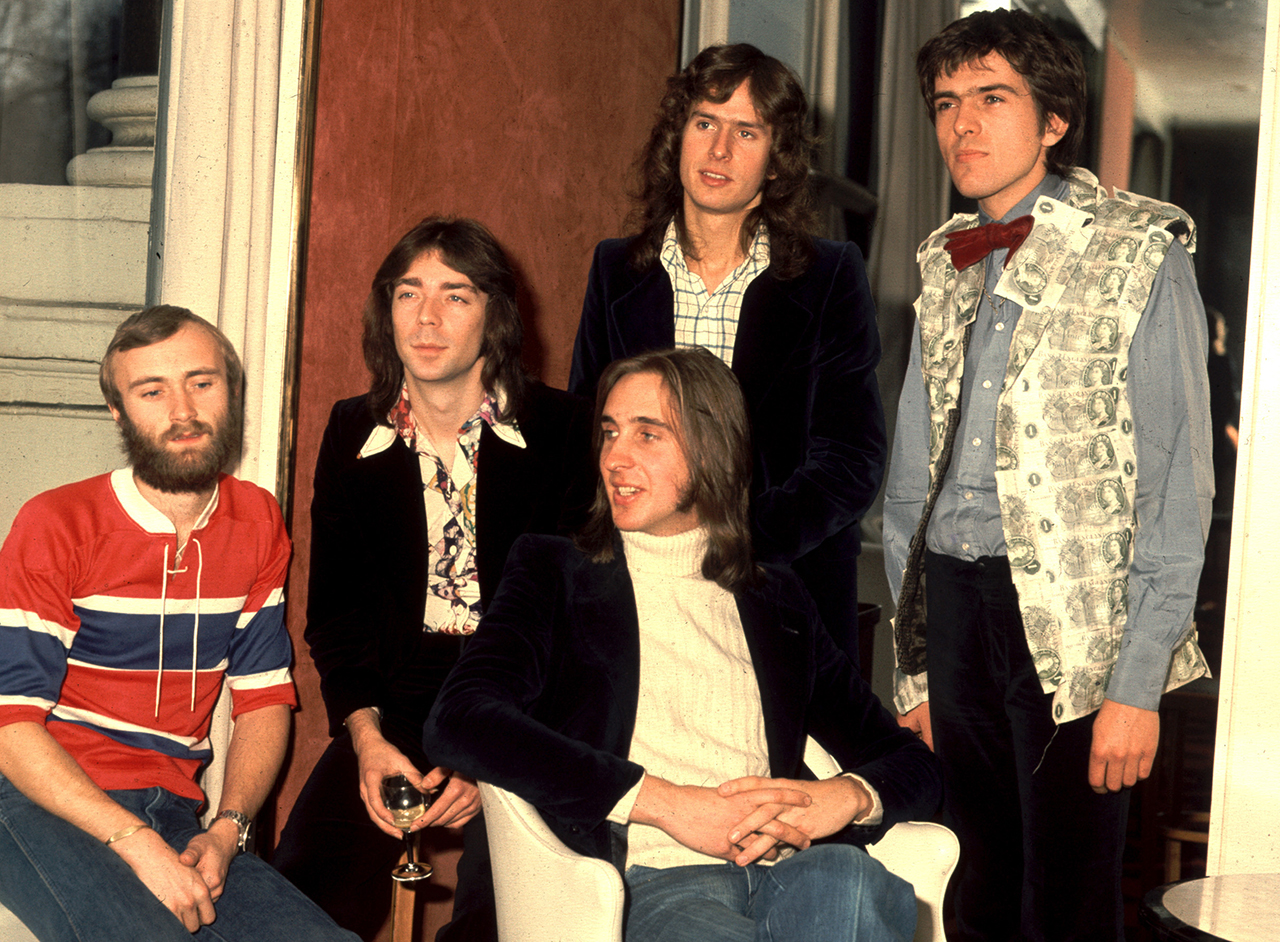
Peter Gabriel: The hotel was part of rock’n’roll culture. I realised, “I’m part of this machinery and I don’t feel this is where I should be or who I am.” I could feel the pressure mounting and I had to punch my way through it.
Tony Smith: I persuaded Peter to keep it to himself. I said, “Let’s just finish the tour and you can think about what we’re going to do after that.”
Mike Rutherford: Tony Smith probably thought he’d just wait ’til nearer the end to tell us.
December 6-7: shows at Academy Of Music, New York.
David Lawrence: In the middle of the jam section [The Waiting Room] there’s a long crescendo of sound getting louder and louder as the lights get brighter and brighter. Suddenly all the stage sound equipment went off – no keyboards or guitars, just Phil on drums. Backstage there’s panic. The band, all except Phil, came offstage, leaving him to do a quick solo. We were all running around looking for the power supply board to see if a fuse or circuit breaker had blown. Everything had been painted matt black, including the two big fuse boxes which we just could not find. The power came back on and the band went back onstage as if nothing had happened. I think the audience thought it was part of the show!
December 16: show at Maple Leaf Gardens, Toronto – one of the possible dates that Peter Gabriel told the rest of the band he was leaving.
Mike Rutherford: By then it wasn’t a surprise. You almost expected it.
Tony Banks: It was not the happiest time for us in any sense, because Peter was a bit iffy at the beginning of the tour and by the middle of it said he was definitely going to leave, which was very sad in many ways, for me particularly. But also, it did make it kind of tricky to do.
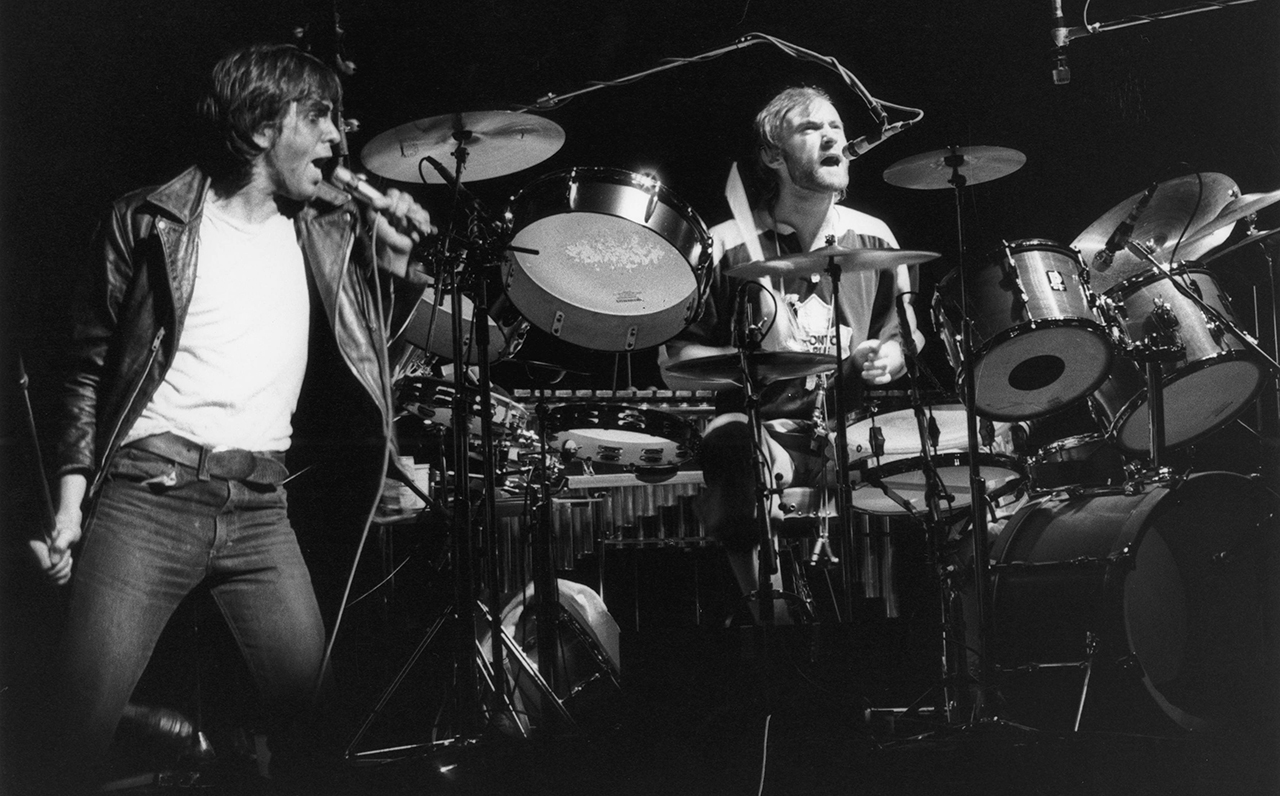
January 10-February 4, 1975: the second leg of the North American tour. Genesis play The Shrine Auditorium in Los Angeles on January 24.
Tony Smith: The Shrine show was a particularly good one. By the time we got to LA, we’d toured most of the country, so people had started to be convinced. And the band had grown in confidence. Also, the production, although it never really worked, was better than ever there.
Mike Rutherford: During the show you tried not to look around too much as you’d go, “Oh, fuck – there’s two mountain scenes and an eyeball, when there should be three mountain scenes!”
February 19-April 12: the first leg of the European tour.
Robert Fripp said, ‘I think the band are pulling in two different directions.’ He was absolutely right
Steve Hackett
David Lawrence: In Oslo, the night before the first, one of the trucks broke down 10 miles outside town. We spent four hours in the dark carrying or pushing 80 cases of gear down this snowy hill. The highlight was me and four others holding on to Tony’s Hammond organ, trying to stop it going over the edge of the cliff as it ran away from us. It was eventually stopped by a snowdrift. The show went well until a small flash box, that normally gives a slight flash and puff of smoke, decided to explode instead.
Steve Hackett: It was so loud it blew out the equipment, and suddenly the gig was over.
David Lawrence: The band went deaf for several days, small parts of the stage had gone and speakers had been destroyed. We never found the flash box, although bits of stage equipment were picked up 150 feet away.
March 6: show at Pavilhão dos Desportos, Cascais, Portugal. The band play just days before an attempted right-wing coup led by General Spínola.
Steve Hackett: They’d overseold the gig hugely. People were getting hurt and there were mountains of human bodies.
David Lawrence: We heard tanks outside the hall. We had walked into a small revolution. Troops were walking around with a gun in one hand and a can of beer in another. A few shots were fired over people’s heads and the place went mad.
Steve Hackett: It was the most frightening gig because there were firecrackers going off and many of the audience had guns. Sometimes in those days, people would come up to the stage with crowbars ready to do damage. It was hairy, believe me.
Tony Banks: We’d come in on the Portuguese airline, TAP. We’d had a difficult landing so we decided to wait for a big American 707 on the way back. We got on the plane, but it didn’t take off – it veered across fields to the right before stopping. A very shaky captain came into the cabin and said that the plane’s instruments had given up, which meant that he’d had to abort take-off. We were quite lucky. An exciting little period, that.
March 13-27: Genesis’s Italian tour is cancelled due to political unrest in the wake of the assault and eventual death of Sergio Ramelli, an Italian Social Movement militant. The only show that takes place is on March 24 at Palasport Parco Rufion, Turin, Italy.
Steve Hackett: In Italy gigs were flashpoints – people would break into shows; the army and the police would be called. There would be tear gas. People would be hurt.
David Lawrence: The riot police arrived; windows in the hall were smashed; tear gas shot. We did the show and were all escorted to the Italian border and told never to come back. Tony managed to get some extra dates in Germany and a couple in France, but by now the tour was taking its toll with most of us.
April 14-May 2: UK tour opens with two shows at Empire Pool, Wembley.
David Lawrence: Wembley was like coming home after a war. Nothing was going to stop us now and we pulled out all the stops: 20,000 fans loved us.
Steve Hackett: I think that Pete had his show, and we had ours. I remember Robert Fripp saying to me after he’d seen us at the Empire Pool, “I think the band are pulling in two different directions.” He was absolutely right. Most of us were sitting down to play and Pete was appearing in all manner of costumes. I get the feeling that if Pete thought he could perform with a diver’s helmet on in a fully submerged tank and still get a vocal across, he’d probably take the risk.
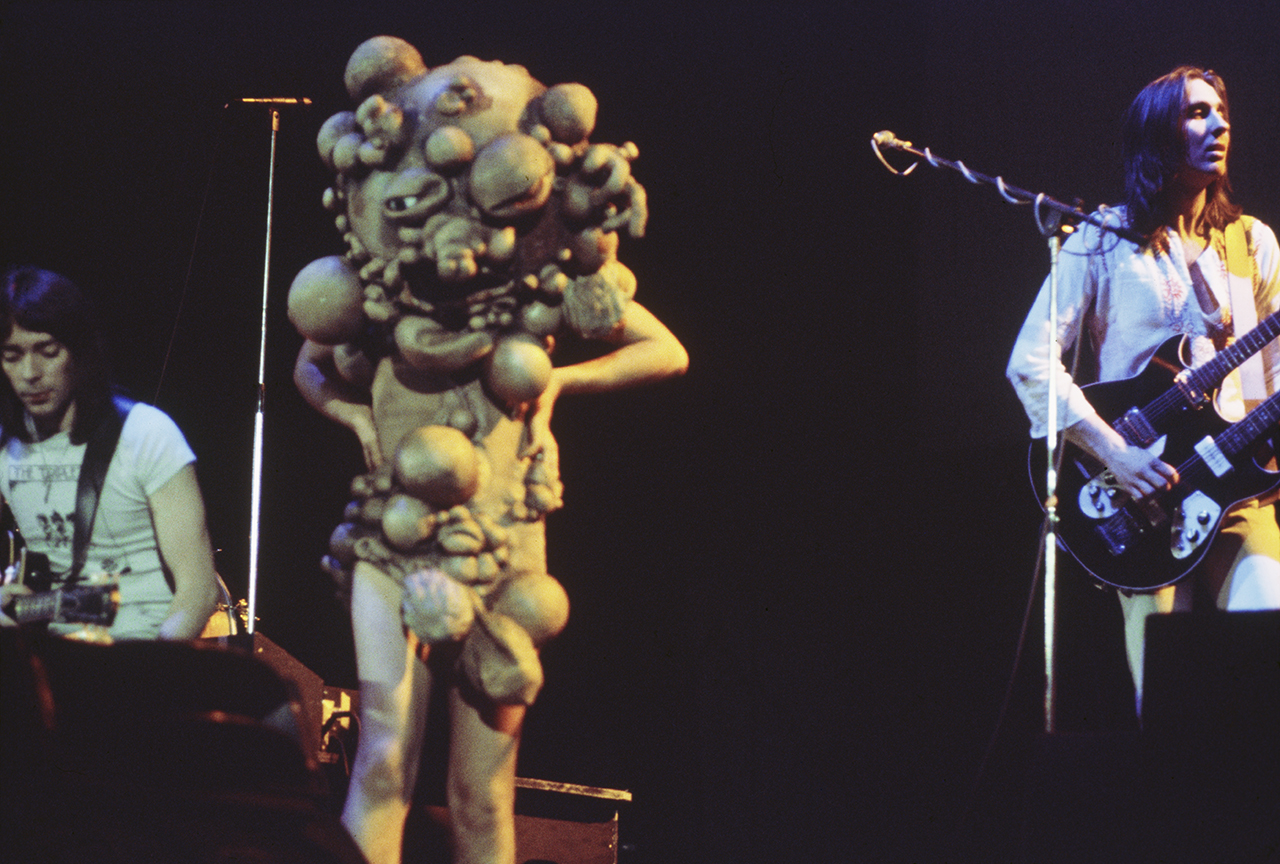
Peter Gabriel: I didn’t like playing at Wembley too much. Personally, I wouldn’t like to play there again. I don’t like that situation. It’s curious, because one big hall in Germany – I think it was in Cologne – really had an intimate feeling. There were 9,000 people there. But the Empire Pool really wasn’t intimate at all.
Early May: BPI Gold Disc Presentation ceremony for Selling England By The Pound at The Savoy Hotel, London. Peter Gabriel wears a waistcoat made out of £1 notes while the others look on discreetly.
Tony Smith: Peter’s waistcoat was a gesture saying, “We’re not in it for the money; we’re not in it for the fame.” He was protesting against the commerciality of it.
May 8-22: the final European tour gets underway at Sportpaleis, Antwerp, Belgium, concluding with Gabriel’s final show at Palais des Sports, Besançon, France.
I had more confidence in Genesis continuing than they did themselves … they were way more successful without me
Peter Gabriel
Mike Rutherford: We were in terrible debt and Tony Smith thought we could get a bit of money into the kitty. So we did these shows, but they didn’t sell at all, which was a disaster.
Phil Collins: Just before we go onstage in Besançon, Tony Smith tells us that the last gig, in Toulouse, is cancelled due to lack of interest. This seems to sum it up. So, the penultimate show becomes the last show.
Peter Gabriel: I had a big lump in my throat when we did the last gigs in France. A big chapter in my life was coming to an end, and I couldn’t tell anyone. We had a policy of doing no interviews throughout that tour.
Tony Banks: At Pete’s final gig, he played The Last Post in the dressing room – on the oboe, which he never really fathomed.
Mike Rutherford: We never hugged in those days. It was all a bit weird, a funny feeling.
Tony Banks: There was a very strong possibility that the last show we did with Peter was going to be the last show we ever did. It was weird because we knew, and one or two people close to us knew, our wives and everything. They were in an emotional state. But the guy who was doing the mixing and the guy doing the lights didn’t know anything about it. They were wondering, why was everyone in such tears? You know, it was just the end of a tour. So what?
July 12: rumours of Peter Gabriel’s departure are quashed by NME. August 16: Melody Maker ask, ‘Gabriel Out Of Genesis?’ August 20: His departure is confirmed.
Tony Smith: I think Tony Banks probably felt it worse because they had been childhood friends. But everyone accepted what it was and they respected Peter’s decision.
Mike Rutherford: Peter did the right thing for him. Having written the whole thing like he did lyrically, it would have been hard to come back and do, like before, a few songs here and a few songs there.
Steve Hackett: Being in a band with strong characters doesn’t always bring out the best in everyone’s capabilities. Pete was obviously capable of so much more; you could say that about many of the characters in Genesis.
Tony Banks: In some ways I felt a sense of personal loss, but it was a relief as well – I can’t deny that. We then had something to prove, which gave us a new goal. Fortunately, the audience wanted to stay with us.
Tony Smith: I wasn’t sure what the band were going to do. They wanted to carry on. Phil’s view was to just play instrumentals. They carried on writing and in the meantime, we started looking for a singer, a frontman. Of course, we couldn’t find anyone. We got to the end of the next album, where Phil had sung most of the vocals. We thought, “Well, there you go, we’ll try this.” But we weren’t sure he actually wanted to be a frontman.
Mike Rutherford: As always in life, if you’re not sure what to do, keep writing. We went back and thought, “Let’s do a bit of writing and see what happens.” It all came, we wrote well, Phil started singing. It’s funny how things turned out.
Peter Gabriel: I had more confidence in Genesis continuing than they did themselves. And the reason was because we were a group of songwriters, and the songs would continue coming out. It’s a funny thing, but when I was the singer, everybody thought I created everything and wrote all of it. Of course, when I left the band, they were way more successful without me. Everybody then assumed, “Ah, OK, he did nothing!”
Tony Stratton Smith: The Lamb is a hymn to the integral innocence of the human spirit meeting the bacon-slicer of a corruptive society: a forerunner to the ‘street music’ of the late 70s and far better crafted. That’s why the legend of the piece grows stronger through the years, while much rival material has gone swiftly to the dumper.
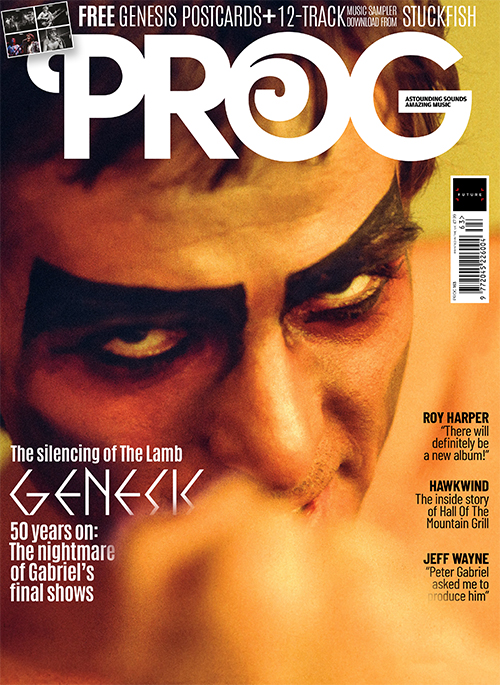
Peter Gabriel: I’m not sure if the story made much sense to most people, but it did mean something to me. In essence, it was about an awakening – Rael was on a journey to find himself, in a seductive, magical place.
Tony Smith: I’m not even sure Peter understood the story, to be honest. It was a stream of consciousness more than anything else. It was about sex but it was more than that: about the coming of age of a young man.
Mike Rutherford: It was a difficult time. But hearing the music now, without having any reference to the past, it sounds strong.
Phil Collins: Despite the impending departure of Peter, most of the snapshot memories I have of The Lamb tour are great. A lot of the time, truth be told, I’m in heaven.
Steve Hackett: Lilywhite Lilith, the title track, Fly On A Windshield – these things aren’t going to go away. They somehow mature like fine wine. Every now and again you take them out of the cellar and go, “Wow!”
This feature includes new interviews with Mike Rutherford, Steve Hackett, Tony Smith and Tony Banks, February-July 2025. On-the-record quotes come from Sounds, 1974; Six Of The Best event programme; Tony Banks, Richard Macphail, Mike Rutherford quotes from Without Frontiers – The Life and Music Of Peter Gabriel by Daryl Easlea; David Lawrence quotes from The Waiting Room, issue 45, used with kind permission of Alan Hewitt, www.twronline.net; Gabriel 1974 quotes from Genesis – I Know What I Like by Armando Gallo; Tony Banks Last Post/oboe quote from The Book Of Genesis by Hugh Fielder; Peter Gabriel Friedkin and departure quotes, Uncut. Other quotes from Genesis Revisited by Alan Hewitt; Peter Gabriel by Spencer Bright; Genesis Chapter & Verse; Melody Maker; Rolling Stone and Phil Collins’ Not Dead Yet.
Daryl Easlea has contributed to Prog since its first edition, and has written cover features on Pink Floyd, Genesis, Kate Bush, Peter Gabriel and Gentle Giant. After 20 years in music retail, when Daryl worked full-time at Record Collector, his broad tastes and knowledge led to him being deemed a ‘generalist.’ DJ, compere, and consultant to record companies, his books explore prog, populist African-American music and pop eccentrics. Currently writing Whatever Happened To Slade?, Daryl broadcasts Easlea Like A Sunday Morning on Ship Full Of Bombs, can be seen on Channel 5 talking about pop and hosts the M Means Music podcast.
You must confirm your public display name before commenting
Please logout and then login again, you will then be prompted to enter your display name.





